News from Maison de la Gare
Finding the Childhood He Never Had
Tweeter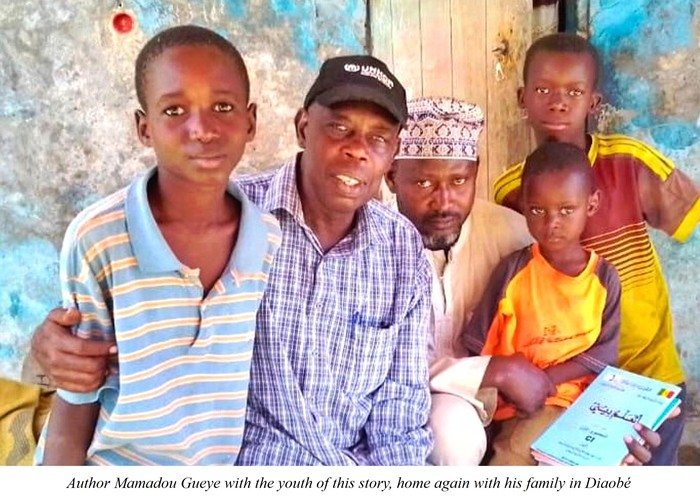
Mamadou Gueye’s moving account of finding a child and returning him to his family
There are nights that stick in your memory like a slow burn. Nights when silence weighs more
heavily than words, when each step echoes like a cry for help that no one wants to hear. That
night, on the fishing 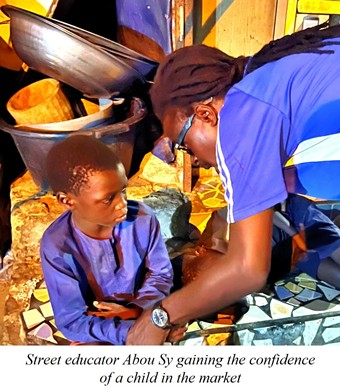 wharf in Saint Louis, a child stood alone between two worlds - the one he
had fled and the one he hoped to return to. He was only nine years old.
wharf in Saint Louis, a child stood alone between two worlds - the one he
had fled and the one he hoped to return to. He was only nine years old.
He no longer cried. Not because he wasn't afraid, but because a child's heart can only hold a
sea of tears - and his had dried up. He wasn't running away to beg less … he was running away
to live a little more. He had just escaped from his daara after months of beatings, hunger,
loneliness and humiliation. That evening, all he wanted was to go home to Diaobé. To see his
mother again. To feel his grandfather's arms. To become a child again.
When Mamadou Gueye and the others found him, he didn't say much. He was used to not being
listened to. He simply whispered: “I want to go home”.
“Home” - such a simple word, so heavy. And then something clicked. Something you don't often
see in the stories of talibé children: the possibility of a return.
Welcomed at Maison de la Gare, fed, cared for and reassured, he saw a new dawn. Very quickly,
a search was launched. Because it wasn't enough to get him off the streets.
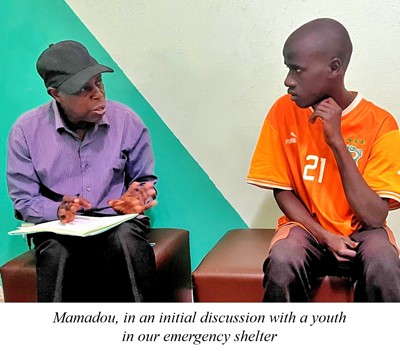 We had to give him
back what had been stolen from him: his childhood, his dignity, his family.
We had to give him
back what had been stolen from him: his childhood, his dignity, his family.
And one morning, after a thirteen-hour journey, the vehicle arrived in Diaobé, in the south-east
of Senegal. The sun was just rising, caressing the rusty tin roofs and fields still damp with
dew. The child said nothing, but his eyes burned with feverish anticipation. At the entrance
to the village, some children saw him coming. They shouted his name. Like an
incantation. Like a miracle.
Within minutes, the whole neighborhood was there. The women dropped their basins. The men,
speechless, crowded around him. They couldn't believe their eyes. The child they thought lost,
swallowed up by the streets of Saint Louis, had returned.
A family council was held immediately. The grandfather, a respected figure, decided in a firm
voice: “Never again to the daara”. His voice trembled, not with doubt, but with emotion. The
mother, with tears in her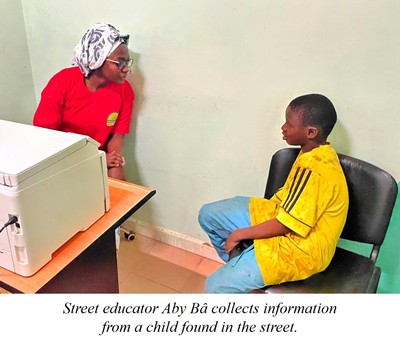 eyes, nodded silently in agreement. The older brother, his fists
clenched, was already asking what he could do to help him stay. Never lose him again.
eyes, nodded silently in agreement. The older brother, his fists
clenched, was already asking what he could do to help him stay. Never lose him again.
And that's where the real story begins. Not the rescue story, but the rebuilding story.
Maison de la Gare has promised support. Follow-up. Support with housing, schooling and a new
life. The child has been enrolled in school. He is also learning the Koran, but in a healthy,
respectful environment. He plays with others. He's laughing again. And sometimes, when he does
something stupid - because he does, like all children - it's Mamadou Gueye they call. Because
the bond remains. Because you don't abandon the people you've helped to get back on their feet.
This return is not just the story of a child who has been found. It's an act of resistance. A
living response to a dehumanising system. It is a refusal to believe that a child must suffer
in order to learn. It's about a family rebuilding itself,
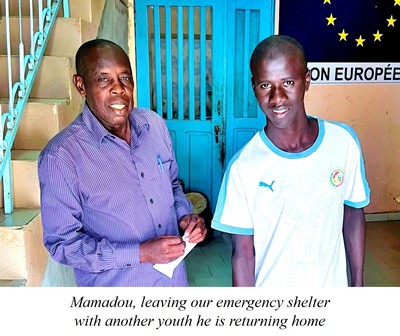 a village remembering, and an
organisation that chooses, every day, to act rather than look the other way.
a village remembering, and an
organisation that chooses, every day, to act rather than look the other way.
There's something deeply moving about seeing a child return home. Not by a miracle, but because
adults have done their bit. Because people decided that his life mattered. Because they listened.
And every time I think back to that night at the fishing pier, to that frail figure in the
moonlight, I tell myself that this return should be the norm, not the exception. That every
child who runs away from a daara should be able to find his mother, his laughter, his home.
Because when it comes down to it, there is no greater act of justice than bringing a child
back home. Where they don't have to choose between light and darkness. Where they can finally
simply sleep in peace.

